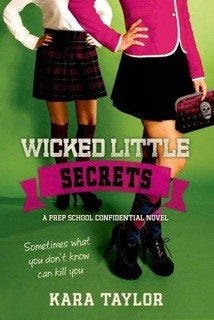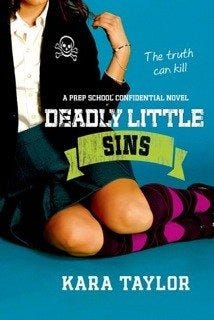
Guest Post: Selling On Proposal
[box type="note"]Amie here first: Today I have Kara Thomas on the blog to talk about selling books on proposal. Take it away, Kara![/box]
There’s a ton of information out there for writers on the submission process, or what happens once you’ve signed with a literary agent and it’s time to take your book out like a nice, meaty gazelle to all the editor lions. Usually when an author says their manuscript is on sub, they’re talking about a complete book.
But what if you’ve been on the sub train before and have already got a book or two published? You’ve proven that you can finish an entire book in a timely manner, and you’d love the income and stability of another publishing contract—even if you don’t have a polished, complete manuscript ready to go.
That’s when you should have an honest conversation with your agent about selling a book on proposal.
Full disclosure: My agent sold my latest book on proposal. I had just wrapped up a series for a publisher, and I’d started a new project I was really excited about. Instead of waiting until I had written the whole book, I showed my agent the first few chapters, plus a synopsis. She was even more excited than I was, and we mutually decided to submit it to a batch of editors.
Wizard that my agent is, she found an editor who was even more excited about the book than WE were, and by the end of the week, we’d accepted her offer.
The first rule of Selling on Proposal: There are no hard and fast rules.

So what is a proposal anyway? Generally, I’d say a proposal consists of, at the very minimum, five sample chapters and a detailed synopsis of the book. My proposal had seven sample chapters—about 50 pages. I’ve also read a proposal that had sold on nearly 100 pages and a very detailed synopsis.
Note: Here’s a good time to mention the distinction between submitting on proposal and a contracted book. If your agent sells your manuscript in a multi-book deal, and you accept, you get to write more books for your publisher. Yay! You will probably have to have your editor approve the topic of your next book based on a proposal—especially if the first book you sold is a standalone and not the beginning of a series—but lets forget about contracted books and focus on submitting on proposal.
I’d heard that only bestsellers can sell on proposal, or that proposals don’t sell for as much money as completed manuscripts. Both proved false for me, but again, there are no real rules. This is publishing!
The second rule of Selling on Proposal: That proposal has to rock!

Since you’re only showing editors a sample of your writing, it should be the best dang writing you’re capable of. A lot of writers get hives at the word “synopsis”, but the synopsis is where you have to sell all the twists and turns in your story and set it apart from other books in your genre. So while technically a proposal is an unfinished book, a proposal should never feel unfinished.
Easy, right? You’re probably thinking, “I’d rather just write the whole book at that point!” Which brings me to...
The third rule of Selling on Proposal: It’s okay if it’s not for you.
I see a lot of authors worry about selling on proposal, since it’s essentially selling an idea. The actual, finished book might not be what the editor who bought it was expecting. It’s true that delivering a book under a deadline is stressful, and some writers feel the quality of their work suffers when there’s pressure to produce.
My story ended happily: My editor and I are both very happy with how the book turned out. Now, let’s see what readers think next year!
[hr]
KARA THOMAS is the author of The Darkest Corners, coming from Penguin Random House/Delacorte Press in Spring 2016. She also wrote the Prep School Confidential series (St. Martin’s Press) and the pilot The Revengers for the CW under the pen name Kara Taylor. She’s represented by Suzie Townsend of New Leaf Literary & Media. You can find her on Twitter, Instagram, or on the couch with her rescue cat, Felix.








